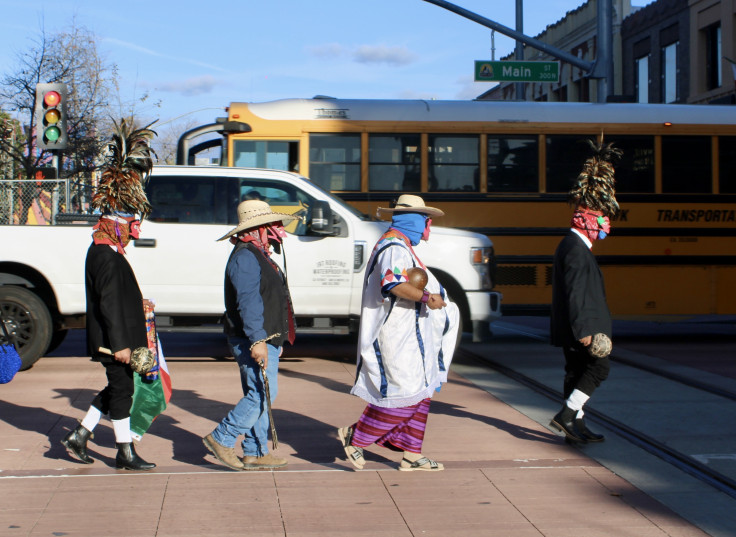
A significant festival from the heart of Mexico will debut on March 9th, on the west coast of the United States. For the first time, the Oaxacan and Chicano community in California will hold an Indigenous Coastal Carnival, a unique tradition filled with colorful masks and traditional dances.
The event will take place in the city of Santa Ana, just half an hour from Hollywood, and will span the entire Saturday in three parts. First, there will be a tasting of tacos and one of the most traditional beverages on Mexican tables: tepache, known as the light and sweet pineapple beer.
Then, a presentation of three dances with ancestral roots known as Los Tejorones, Las Mascaritas, and El Caballo Loco will follow.
And finally, there will be a performance by a traditional music group from the Oaxaca and Guerrero coasts, who will play for guests to dance and have fun "as if they were at a town festival," explained Iván Santiago, leader of the Chikua'a dance group organizing this carnival, to The Latin Times.
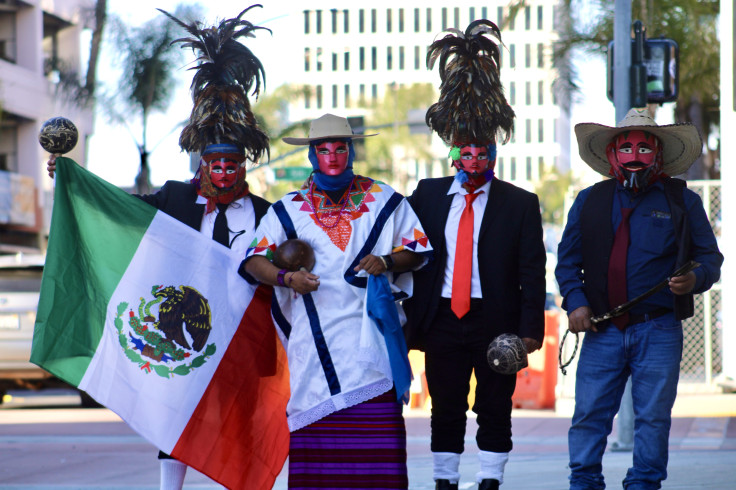
The Chikua'a dance group, named in Mixtec after the indigenous municipality of San Pedro Jicayán, emerged in 2023 with the organization of the First Mixtec Day of the Dead Festival, and it serves as a grounding force for migrant communities in the area.
"Santa Ana, California, is home to many Mexican migrants, but the Oaxacan community is particularly large. That's why we decided to organize a dance group that could transport us to our roots and thus continue to keep our cultural heritage alive," Santiago explained.
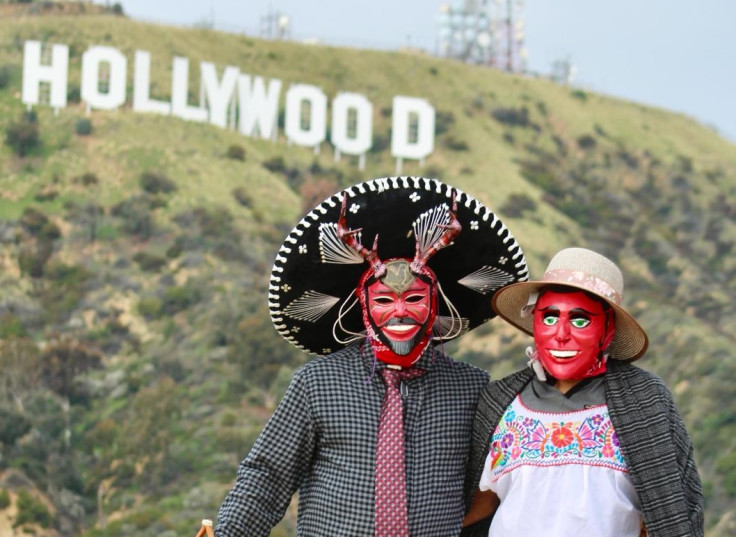
He continued, "When we migrate to other countries, we often forget our origins, our traditions, and our language, because we try to adapt to the conditions of the new place; however, as a community, we want to keep our culture more alive than ever despite the distance."
The Chikua'a group includes young and adult migrants, as well as new generations born in the US who reside in Santa Ana. Additionally, participants have joined from other cities such as Ontario, Los Angeles, Whittier, Costa Mesa, Anaheim, Orange, and Tustin.
Most of the members were born in or have family from the municipality of San Pedro Jicayán and its surrounding areas, as well as one from San Andrés Huaxpaltepec, on the coast of Oaxaca. However, there are also participants from other regions of Mexico.
Uprooting, leaving families, and also the activities they used to do in Mexico become a significant challenge for the mental health of many migrants, Santiago describes to this outlet. And he acknowledges, "many of us suffer from loneliness and depression."
However, "thanks to the unity provided by this dance group, this adaptation process is becoming easier. We are a group proud of our roots and of coming from an indigenous town. We all speak Mixtec, our mother tongue, as well as Spanish as a second language. And these dances allow us to share with the people of California part of our essence and part of our indigenous identity as a native people," he says.
The Three Dances of the Carnival
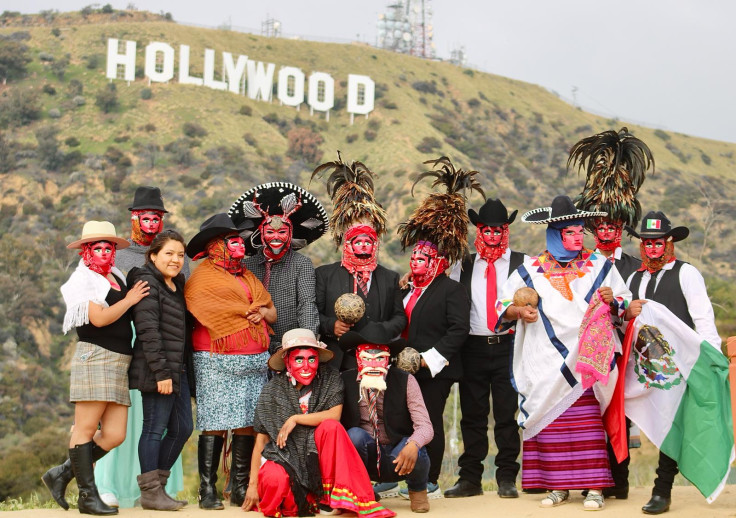
Santiago says that the three dances are his favorite part of the Carnival, due to their significance. "Just as at some point in history, dances represented, in some way, a resistance against colonization or the French invasion, today for us it represents a resistance against the loss of our identity while being in a culturally different country," he explains.
The first dance, "Los Tejorones," will feature dancers adorned with elaborate headdresses crafted from "the finest rooster feathers" imported from their indigenous community in Mexico.
Carved wooden masks with European features, along with traditional attire of white shirts, black pants, coats, and ties, complete the ensemble. Santiago explains that this dance may have originated during colonial times as a form of protest against Spanish colonization.
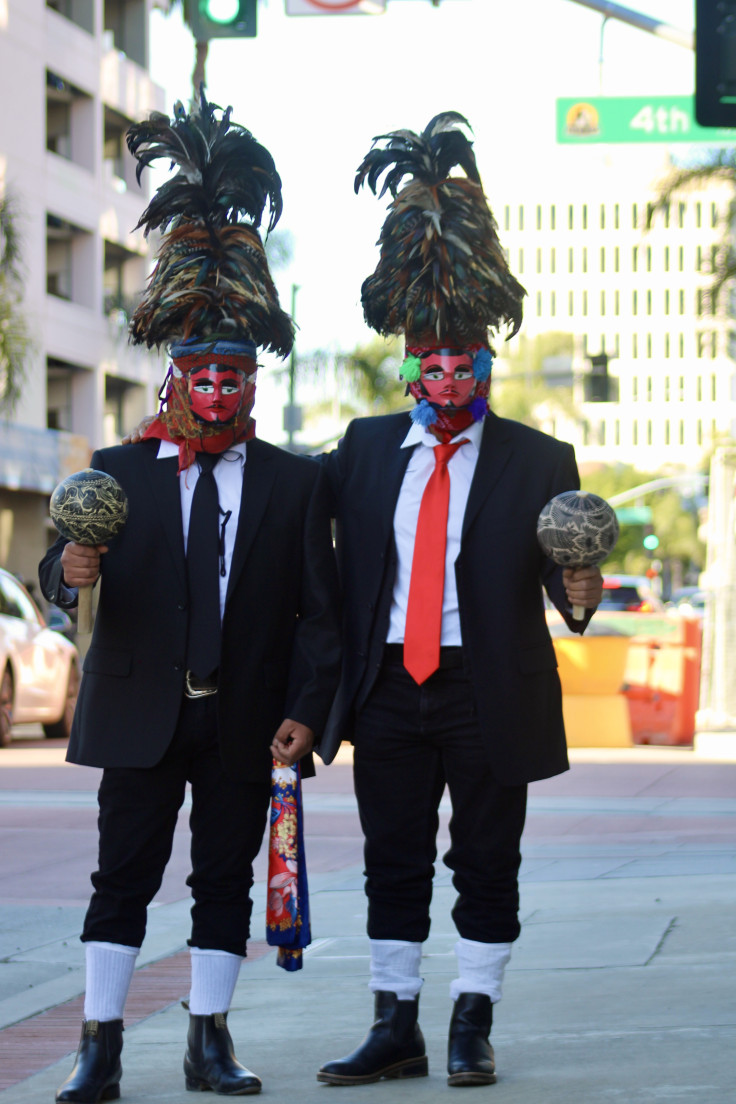
In the "Mascaritas" dance, performed during carnival season and community festivities, dancers wear shirts, vests, pants, shoes, hats, and intricately carved or painted wooden masks. Two key figures, "el viejo", meaning the old man, and "la vieja", meaning the old woman, lead the dancers.
"It is said that this dance originated following the French invasion of Mexico in the 19th century. The indigenous people of that time discreetly observed how the invaders organized their festivities, and once the French had departed, the Mixtecs celebrated with this type of dance, but in a more exaggerated and grotesque manner, as a form of protest and resentment towards the invasion," Santiago explained.
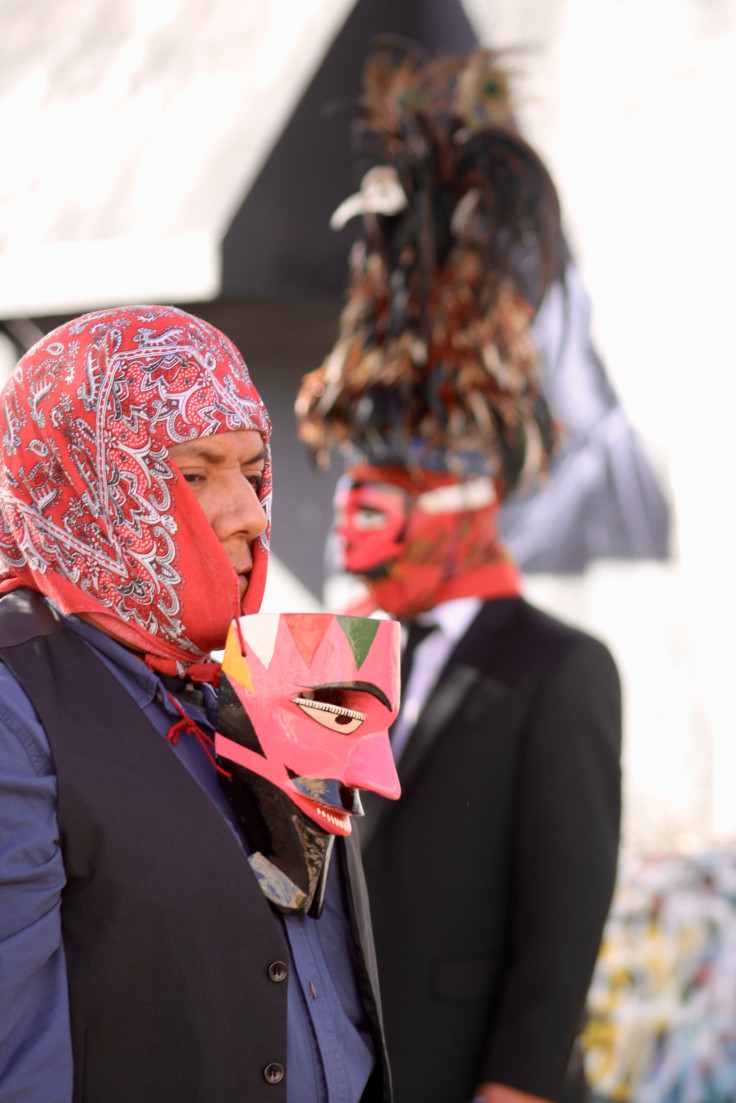
The "Crazy Horse" dance invites audience participation, with lively music played by a traditional orchestra as dancers gather around a cardboard horse. The festive atmosphere encourages everyone to join in the celebration, which is significant as these dances also aim to bring joy to Mexican communities.
'While the goal of our dance group is to keep our cultural heritage alive, this project also unites the community and provides a space for recreation," Santiago assures.
© 2024 Latin Times. All rights reserved. Do not reproduce without permission.







